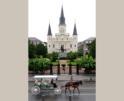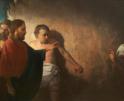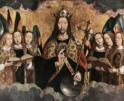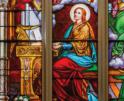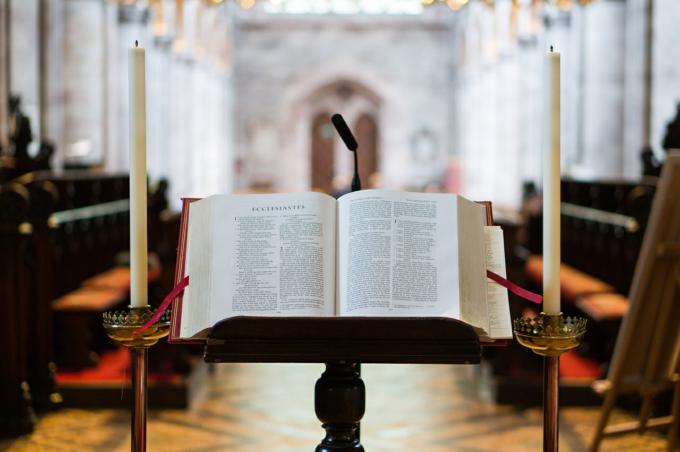
Faith
The story of the development of this book would be best characterized by the word "cautious."
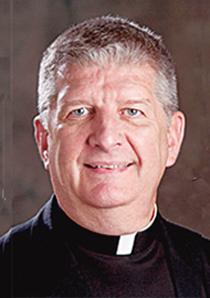
O’Grady
Libraries contain some books that are well-used, some that are occasionally opened, and others that gather a bit of dust. In the liturgy library, there are books like those. Among the dust gatherers, you might find "Sunday Celebrations in the Absence of a Priest" or SCAP.
This book is the result of many requests from priestless or priest-poor areas of the world. Most of the requests came from bishops in Africa, Asia, and South America. Once issued, it was rapidly adopted by bishops in Europe and North America.
The story of the development of this book would be best characterized by the word "cautious." The Holy See was extremely cautious about the project. This is evidenced by the constant reference to Sunday as the day for the celebration of the Eucharist, the emphasis on the temporary nature of the book, and the need to promote vocations to the priesthood.
The introductory material certainly states these three issues clearly, and the prayers composed for the ritual express the issues loudly and clearly.
Before a look at the contents, a couple of items about the use of the book or taking it off the shelf and dusting it off.
The SCAP may not be used within a diocese unless it has been permitted by the diocesan bishop, and this only after he has consulted with the presbyteral council, the pastors, and others (an example might be a diocesan pastoral council). Once that has been done, then the bishop consults the pastors of the parishes where this might be used. Only after that may he give permission for it to be used in a parish.
There is a clear order of preference of those who would lead the services: permanent deacons, religious men or women, and laity who already exercise some service in a parish. These are to receive substantial formation in their liturgical and pastoral responsibility.
A particularly important rule is that this ritual book (note that it is about Sunday) may not be used in a church in which Mass was, is, or will be celebrated either as an anticipated Mass on Saturday or throughout Sunday. It is not simply a "different" form of Mass.
Pastors are urged to provide the parishioners with information about parishes nearby that have regular Sunday Masses and urge them to attend Mass there. Pastors may not, on their own initiative, schedule such SCAP. Only the diocesan bishop may allow these SCAP in his diocese.
After a bit of searching, I can tell you that the only place in New England where SCAP has been implemented is in the Diocese of Portland. I could find nothing that even hinted that the situation this liturgical book requires is present anywhere in our archdiocese or other New England dioceses.
This reflects the continuing caution on the part of diocesan bishops about implementing SCAP in their dioceses, lest the idea arise among us that this is the "acceptable" alternative to Sunday Mass.
The liturgy teaches powerfully and, in some ways, more powerfully the faith of the Church than words, classes, or even catechisms. And the "practice," or what we do, flows from what we believe.
With those cautions, let's look at the possibilities, if the bishop says we can.
The possibilities are basically three: morning prayer or lauds; evening prayer or vespers; and a Liturgy of the Word. Each of these could be celebrated with or without Holy Communion, and models for the options of celebrations are provided.
The options are provided in order of their preference. Since the lauds and vespers are existing liturgical prayers, incorporating the distribution of Holy Communion within them is the first choice. And obviously, they are to be celebrated at the respective times.
The Liturgy of the Word has been created for this volume. More than the other two "hours," this rite employs language that emphasizes the primacy of the Sunday Mass, its preference as the worship of the Church, and the temporary nature of this rite.
The amount of material available about this book, the process of its creation, the advisability of its uses, and the dilemmas faced by faith communities awaiting a priest revealed an amazing unanimity among liturgists, pastors, bishops, theologians, canon lawyers, and church historians.
The unanimity was simply a question: "Should we do this at all?" Most of the varied answers came with very tentative and lukewarm, "Okay, as long as ..." and some of the filled-in blanks were: "the faithful are sufficiently catechized," "the temporary nature of this provisions is made very clear," and "the leaders of the SCAP are specifically formed and trained for this duty."
Lastly, back to the title of the book. This is about Sunday. Shortly after this volume was released some 30 years ago, some immediately asked the Holy See about a similar volume for weekdays. Almost as if indicating the extreme caution of SCAP, it seems as if that motion has been "tabled." In a coming column, we'll look at daily Mass and the accompanying issue of options for prayer when there can be no daily Mass.
Recent articles in the Faith & Family section
-
Our Lady of DeliveranceJaymie Stuart Wolfe
-
The 'month of the dead' brings its own strange refreshmentBishop Robert Reed
-
Make New Friends, But Keep the OldMaureen Crowley Heil
-
A royal truthScott Hahn
-
St. Cecilia and hope in sacred songRichard Clark

